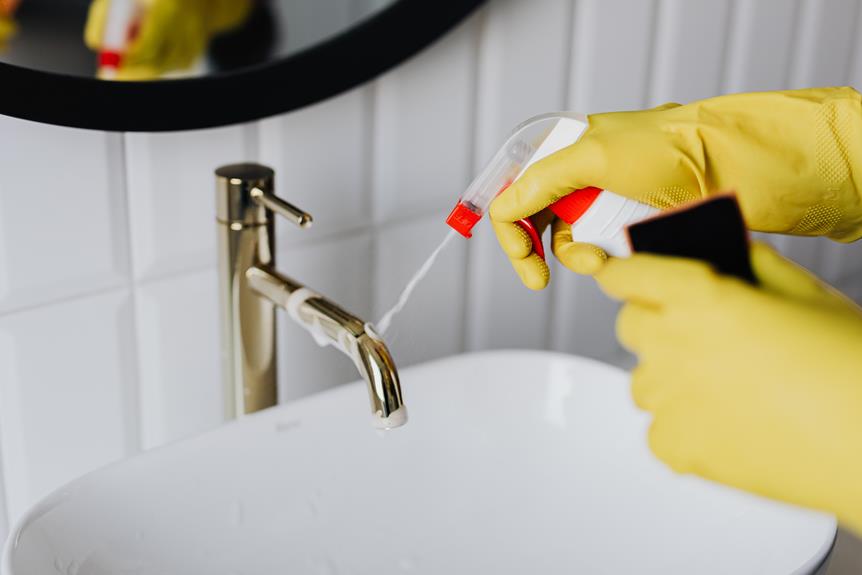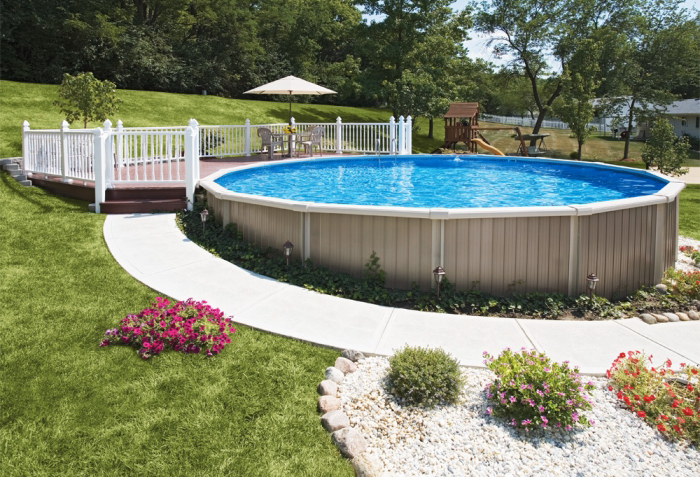Are you ready to become a pro at taking care of your swimming pool? Get ready to dive into the world of swimming pool maintenance 101! In this article, we’ll reveal the secrets to keeping your pool crystal-clear and inviting. From balancing the water chemistry to maintaining the filter system, we’ve got you covered. So grab your supplies and get ready to make a splash with your expert pool maintenance skills. Get ready to enjoy a season of swimming in a pool that’s clean, safe, and oh-so inviting.
Key Takeaways
- Proper cleaning and maintenance of the pool, including testing and balancing the water, is essential for its longevity.
- Different types of pools, such as saltwater pools or those with different interior materials, require specific maintenance processes.
- The pool filter system, including skimmers and returns, plays a crucial role in keeping the water clean and safe.
- Regular cleaning, including skimming off debris and using a pool brush and vacuum, helps maintain the cleanliness of the pool.
Understanding Pool Water Maintenance
To maintain your pool water properly, it is important to understand the necessary maintenance tasks and chemical levels. Swimming pool care involves regular cleaning, testing, and balancing of the water. It is crucial to know the average size of residential pools, which usually contain over twenty thousand gallons of water. Different pool interiors, such as plaster, pebble aggregates, tiles, stones, and vinyl liner, require specific maintenance techniques. The filter system is essential for keeping the water clean and safe. It removes debris and contaminants from the pool water.
Automatic pool cleaners can also be used to remove dirt that filters can’t get. Additionally, proper pool circulation, regular cleaning, and maintaining proper pool chemistry are crucial for the overall health and longevity of your pool. Following a pool maintenance guide will ensure that your pool water remains crystal clear and inviting for swimming.
Calculating Your Pool’s Water Volume
Calculating the amount of water in your pool is essential for proper maintenance and chemical balance. To determine the volume of water in your pool, you can use a pool volume calculator. This tool takes into account the shape and dimensions of your pool to provide an accurate measurement. Knowing the volume of your pool is important for several reasons. First, it allows you to properly dose chemicals such as chlorine and pH adjusters. Maintaining the correct chemical balance is crucial for keeping your pool clean and safe to swim in. Additionally, knowing the volume of water in your pool helps you determine the appropriate run time for your pool pump. Adequate circulation is necessary to keep the water clear and free of debris. By understanding the basics of pool maintenance, including calculating water volume, you can ensure that your pool stays clean and well-maintained. These pool cleaning tips are especially helpful for beginners looking to take care of their pool.
Choosing the Right Pool Interior
When choosing the right pool interior, it is important to consider popular options and the longevity of each material. Popular pool interiors include plaster, pebble aggregates, tiles, stones, and vinyl liner. Each option has its own unique characteristics and maintenance requirements, so it’s crucial to choose one that suits your preferences and budget while also considering how long it will last with proper care.
Popular Pool Interiors
Choose a pool interior that suits your preferences and budget, such as plaster, pebble aggregates, tiles, stones, or a vinyl liner. Plaster is a traditional and cost-effective option for pool interiors. It provides a smooth finish and can last 15 to 26 years with proper maintenance. Pebble aggregates offer a more natural look and can last even longer. Tiles are a popular choice for their durability and wide range of design options. Stones can create a luxurious and unique look, but they require regular maintenance to prevent staining. Vinyl liners are affordable and suitable for custom-shaped pools, but they typically last 10 to 18 years. Consider your needs and budget when choosing a pool interior that suits you. Now, let’s explore the longevity of pool interiors.
Longevity of Pool Interiors?
To maximize the lifespan of your pool interior, ensure proper maintenance and regular cleaning. Establishing a pool cleaning schedule is essential for keeping your pool in top condition. Skim off leaves and larger debris daily to prevent contamination. Use a long-handled skimmer net to remove leaves and insects. Covers can also help prevent waste from entering the pool. Brush the pool and use a pool vacuum at least once per week to maintain cleanliness. By following a regular cleaning routine, you can prevent the buildup of dirt and algae, which can damage the pool interior over time. Additionally, maintaining proper pool chemistry is crucial for the longevity of your pool interior. Test chemical levels regularly and adjust as necessary to ensure the water is balanced and safe.
The Importance of a Proper Filter System
A proper filter system is essential for keeping your pool water clean and safe. Without a functioning filter, your pool water can quickly become dirty and contaminated with debris and harmful bacteria. The filter system works by removing these contaminants from the water, ensuring that it remains clear and healthy for swimming. There are different types of filters available, including sand filters, cartridge filters, and diatomaceous earth filters. Each type has its own advantages and maintenance requirements. It is important to choose the right filter system for your pool size and usage. Regular maintenance of the filter system, such as backwashing or cleaning the filter media, is necessary to ensure optimal performance. By properly maintaining your filter system, you can enjoy crystal clear water and a safe swimming environment.
| Types of Filters | Advantages | Maintenance Requirements |
|---|---|---|
| Sand Filters | Easy to operate | Backwashing |
| Cartridge Filters | Efficient cleaning | Regular cleaning |
| DE Filters | Superior filtration | Backwashing and cleaning |
Maintaining Skimmers and Returns
Make sure to regularly inspect and clean the skimmers and returns to maintain proper water circulation in your pool. Skimmers and returns are crucial components of your pool’s filter system, responsible for removing water from the pool, filtering it, and returning it back. Here are some important points to consider:
- Inspect the skimmers and returns for any signs of damage or clogging. Clear away any debris or leaves that may be blocking the flow of water.
- Clean the skimmers and returns by removing the baskets and giving them a thorough rinse. Use a pool brush or a net to remove any debris that may have accumulated on the surface.
- Check the O-rings and seals for any wear and tear. Replace them if necessary to ensure a tight seal and prevent leaks.
- Test the water flow from the returns to ensure that it is strong and consistent. Adjust the return jets if needed to improve circulation.
Essential Supplies for Pool Maintenance
When maintaining your pool, it is important to have essential supplies such as a water testing kit, pool brushes, nets, and various chemicals. A water testing kit is crucial for monitoring the chemical levels in your pool, including pH, alkalinity, and chlorine. Pool brushes and nets are necessary for keeping the pool clean by removing debris and leaves from the surface. Additionally, various chemicals like chlorine, muriatic acid, and algaecide are essential for maintaining proper water chemistry and preventing the growth of algae and bacteria. These supplies are crucial for keeping your pool clean, balanced, and safe for swimming. By regularly testing the water, brushing and skimming the pool, and using the appropriate chemicals, you can ensure that your pool remains a refreshing and enjoyable oasis all summer long.
Achieving Proper Pool Circulation
To achieve proper pool circulation, there are several factors to consider. Follow these steps to ensure that your pool water is properly circulated and clean:
- Size and speed of the pool pump: It is crucial to have the right size and speed of the pool pump for efficient water circulation. Consult a professional to determine the appropriate pump for your pool.
- Running the pump for 8-12 hours per day: Running the pump for this duration helps distribute pool chemicals evenly and keeps the water clean.
- Debris removal and jet positioning: Regularly remove debris from the pool and make sure that the return jets spin the water and point at least one jet towards the bottom. This aids in proper circulation.
- Pool design and pump size: Circular pools are easier to maintain than rectangular or irregularly shaped pools. Additionally, having the correct pump size for your pool contributes to easy maintenance.
Establishing a Pool Cleaning Schedule
To keep your pool clean and well-maintained, it is important to establish a regular cleaning schedule. This will help prevent the buildup of dirt, debris, and algae, ensuring that your pool water remains clear and inviting. Start by skimming off leaves and larger debris daily to prevent contamination. Use a long-handled skimmer net to remove leaves and insects from the surface of the water. Additionally, consider using a pool cover to help prevent waste from entering the pool in the first place. It is also crucial to brush the pool and use a pool vacuum at least once per week to maintain cleanliness. By following a regular cleaning routine, you will ensure that your pool is always in top condition. Now, let’s move on to mastering pool chemistry and understanding how to keep your pool water balanced and safe.
Mastering Pool Chemistry
Understanding pool chemistry is essential for maintaining balanced and safe water in your pool. To master pool chemistry, consider the following:
- Test the water regularly: Use a test kit to measure chemical levels such as pH, alkalinity, and chlorine. Keeping these levels within the recommended range ensures the water is safe for swimming.
- Balance the chemicals: Adjust the pH levels to be between 7.2 to 7.8. Maintain the total alkalinity between 80 to 120 ppm and chlorine levels around 3 ppm. Additionally, consider calcium hardness, algaecide, clarifier, flocculant, and metal sequestrant.
- Shock the pool: Regularly shock the pool to break down chloramine compounds. Add one pound of pool shock for every 10,000 gallons of water and wait at least eight hours before retesting the water.
- Follow manufacturer instructions: Always follow the instructions provided by the manufacturer when adding chemicals to your pool. This will ensure safe and effective use.
The Art of Pool Shocking
Now that you have mastered the basics of pool maintenance, it’s time to dive into the art of pool shocking. Shocking your pool is an essential step in maintaining proper pool chemistry and ensuring a clean and safe swimming environment. By breaking down chloramine compounds and eliminating bacteria and algae, pool shocking helps to keep your pool water crystal clear and free from contaminants.
Benefits of Pool Shocking
Shocking your pool regularly helps break down chloramine compounds and maintain proper water chemistry. Here are four benefits of pool shocking:
- Eliminates bacteria and algae: Pool shock contains high levels of chlorine, which kills bacteria and algae that can make your pool water cloudy and unsafe for swimming.
- Restores water clarity: Shocking your pool helps to remove organic contaminants such as oils, lotions, and sweat, which can cause water to become dull and hazy. It restores the water’s sparkling clarity.
- Prevents chlorine resistance: Regular shocking prevents chlorine resistance, a condition where bacteria and algae become immune to the effects of chlorine. By shocking your pool, you ensure that the chlorine remains effective in sanitizing the water.
- Reduces chemical odors: Chloramines, formed when chlorine combines with organic matter, can create unpleasant chemical odors. Pool shocking breaks down chloramines, leaving your pool smelling fresh and clean.
Alternatives to Pool Shocking
To maintain proper water chemistry without using traditional pool shock, consider exploring alternative methods of pool sanitization. These alternatives can be just as effective in keeping your pool clean and safe. One option is using a saltwater chlorine generator, which converts salt into chlorine through a process called electrolysis. This eliminates the need for adding chlorine manually and reduces the harsh chemical smell often associated with traditional shock treatments. Another alternative is using non-chlorine shock, which contains oxidizing agents that break down organic contaminants in the water. This method is gentler on the skin and eyes and is ideal for those with sensitive skin. Additionally, you can use mineral sanitizers, which release trace amounts of copper and silver ions into the water to kill bacteria and algae. These alternatives provide a more natural and less harsh approach to pool sanitization.
| Alternative Method | Benefits |
|---|---|
| Saltwater Chlorinator | – Eliminates need for manual chlorine addition – Reduces chemical smell |
| Non-Chlorine Shock | – Gentler on skin and eyes – Breaks down organic contaminants |
| Mineral Sanitizers | – Natural approach to pool sanitization – Kills bacteria and algae |
Frequently Asked Questions
Can I Use Regular Household Cleaning Chemicals to Clean My Swimming Pool?
No, you cannot use regular household cleaning chemicals to clean your swimming pool. Household cleaners are not designed for pool maintenance and can cause damage to the pool’s surface, equipment, and water chemistry. It is important to use specific pool maintenance supplies and chemicals that are specifically formulated for pool use. These include chlorine, muriatic acid, baking soda, algaecide, and cyanuric acid, among others. Using the correct pool maintenance supplies will help ensure proper pool maintenance and longevity.
How Often Should I Replace the Pool Pump?
When it comes to taking care of your pool, one important aspect to consider is the frequency of replacing the pool pump. The lifespan of a pool pump can vary depending on its quality and usage. On average, a pool pump can last anywhere from 8 to 12 years. However, it’s essential to keep an eye out for signs of wear and tear, such as loud noises or decreased performance. Regular maintenance and timely replacement of the pool pump will ensure the continued efficiency and cleanliness of your pool.
Is It Necessary to Cover My Pool When It’s Not in Use?
Yes, it is necessary to cover your pool when it’s not in use. A pool cover helps prevent debris, leaves, and insects from entering the pool, which reduces the amount of cleaning required. Additionally, covering your pool helps to retain heat, reduce evaporation, and minimize chemical loss. This saves you time and money on maintenance tasks such as skimming, vacuuming, and adding chemicals. So, remember to cover your pool when it’s not in use to keep it clean and well-maintained.
Can I Use Bleach Instead of Chlorine to Sanitize My Pool Water?
Yes, you can use bleach instead of chlorine to sanitize your pool water. Bleach contains chlorine, which is a common sanitizer used in pools. However, it’s important to note that bleach may have different concentrations of chlorine compared to pool chlorine products. Therefore, it’s essential to carefully measure and adjust the amount of bleach needed for your pool size. Additionally, consider factors such as stabilizer levels and pH balance to ensure proper pool water maintenance.
How Do I Prevent Algae Growth in My Pool?
To prevent algae growth in your pool, there are a few key steps you can take. First, regularly test and maintain the proper chemical levels in your pool, such as pH and chlorine. Keep your pool water clean by skimming off leaves and debris, and regularly brush and vacuum the pool to remove any algae spores. Additionally, consider using algaecide as a preventative measure. Proper maintenance and regular cleaning will help keep algae at bay and ensure a clean and enjoyable swimming experience.
Conclusion
In conclusion, maintaining your swimming pool is crucial for its longevity and ensuring clean and safe water for swimming. Did you know that a properly functioning filter system can remove up to 99% of contaminants from your pool water? Imagine a sparkling pool, free from debris and bacteria, providing a refreshing and enjoyable swimming experience for you and your family. By following the tips and techniques outlined in this article, you can achieve just that and enjoy a crystal-clear pool all season long.







